Here are Leonardo’s tips for Dragons on cloud and artificial intelligence

What Roberto Cingolani, Leonardo's chief technology and information officer and now Minister of Ecological Transition in the Draghi government, said on 10 February at a hearing in the Transport Committee in the Chamber, as part of the examination on Pnrr, on digital, cloud and artificial intelligence
Is Italy ready to face the high-level digital transformation?
This is the question posed by Roberto Cingolani, Leonardo's chief technology and information officer, who spoke on 10 February at a hearing in the Transport Committee in the Chamber, as part of the examination of the Pnrr.
From the cloud to supercomputing, from artificial intelligence to cyberseucirty passing through digital manufacturing, these are the pillars identified by Leonardo's Cto for the digitization of the country, therefore a few days before he was appointed Minister for Ecological Transition in the Draghi government.
Regarding the draft of the PNRR, presented in mid-December, "it seems to me that more or less all these things are inserted in different places", highlighted Cingolani. But addressing the executive that would take the place of Count 2, he advanced "a technical observation": "A transformation of this kind, taking into account the short timeframe (36 months), probably would not benefit a stew, I would prefer a strategy integrated while maintaining an integrated structure for the digitization of the country ".
Here are all the details of the intervention of the one who until a few days ago was the manager of Leonardo's technological innovation.
HOW ITALY IS POSITIONED ON SUPERCALCULATION
“Desi positions Italy among the last five / six European digital realities. It is very important to go and see the weaknesses of our country ”, observed Cingolani. “In terms of connectivity and integrated public services we are not particularly behind, but on average or just below average. Where there is a considerable gap is on the digital skills of human capital, on the use of internet services and the integration of digital technologies. It is not just a question of young people but also of operators and workers who do not have the necessary updating on digital ”.
As for a country's super-computing capacity, if we didn't even appear in these rankings in 2018, we've grown now. Great acceleration of Italy which in 2018 did not appear in the ranking, thanks to the technological investments of Eni, Leonardo, IIT, and Cineca. But Europe is still too small compared to Asian countries and the US.
EUROPE BACK ON THE CLOUD FOR LEONARDO
According to Cingolani, “the cloud, the ability to manage data and apply artificial intelligence to this data, sees us very small. Both at national and European level ".
US digital colonialism occupies 69.1% of the infospace, space of data, with Amazon, Microsoft, Google and IBM, a small slice reserved for the Chinese giant Alibaba and the last slice for the rest of the world.
There is a very serious occupation of infospace by US supremacy. While the GDP of the world decreased by 5% in 2020, the revenues of Amazon, Microsoft and Google have risen to 2 figures (to 40/50%). Another paradox concerns Tesla, an automobile manufacturer but which is actually much more like a digital factory than an automotive one, capitalizes on 536 billion dollars and is two and a half times the size of Volkswagen, Daimler and BMW combined.
As Leonardo's CTO pointed out, "the Cloud market will grow from BUS $ 223 in 2019 to BUS $ 500 in 2023 with a 5-year CAGR of around 30%".
WHAT IS ITALY AND THE REST OF EUROPE DOING?
The US, China and Japan will continue the race to Supercomputing, the Cloud and the developments of Artificial Intelligence, which are pervasive. AI will radically change the social, productive, health and military organization of advanced countries. Competition will grow for the control of wireless transmission systems (5G and more) and for the development of cybersecurity. All this mass of data that will be exchanged must in fact be protected.
Europe will have to reduce the gap, especially in the field of Cloud and wireless transmission systems. "But the EU has launched a very strong offensive" underlined Cingolani.
THE EUROPEAN CLOUD ACCORDING TO LEONARDO
With the idea of the European digital sovereignty, the EU has launched the Gaia-X initiative for the European cloud. On the other hand, the Euro HPC for supercomputing.
“The latter is an attempt to coordinate infrastructure, technologies and applications to bring European leadership back higher. But if we are behind in supercomputing but not very backward, we have to catch up on the cloud ”highlighted Cingolani.
Europe has made a strong decision to protect sensitive data, (there is a 10% of data that is fundamental for safety, i.e. health, economic and financial data, safety).
Leonardo's chief technology officer then specifies that “public cloud, private cloud and hybrid cloud have different forms, but there must be a hard core owned by the state of sensitive data, which protects its citizens. A European operating model, compliance for Gaia-X, will establish rules that individual members must comply with in order to be aligned immediately ".
LEONARDO'S PROPOSAL FOR THE CLOUD AND NOT ONLY
Hence Leonardo's program to make Italy a smart country in 10 years, “it is not a sum of smart cities but something more complex”, points out Cingolani.
First of all, to create a complete, autonomous resilient and GaiaX compliant digital infrastructure to digitize Italy. If the first pillar is the cloud of the digital infrastructure, the second is supercomputing, then we have artificial intelligence infrastructures, cybersecurity, digital manufacturing and then 5G and a single network, where the work is already advanced.
"Cyber is fundamental twice, both for the amount of data that will circulate, it is the airbag of civil society" remarked Cingolani. “Leonardo is in pole position in cyber-security, the latest initiative concerns a laboratory
The second pillar of the Digital Italy 2030 project is the launch of a parallel and integrated program for digitalization that includes: global monitoring and surveillance of critical infrastructures, digital health, digitalization of the public administration, enabling all technologies that start the smart city (from water cycle to that of waste) and large supply chain projects.
The third pillar of the project is the launch of a strategic program for the digital enhancement of human capital.
Finally, the fourth pillar is the launch of a leadership program in digital sustainability. Digital is not sustainable, we produce 4% of CO2 (double the emissions produced by air traffic) with digital. An idea of digital sobriety, especially now that with the European Green New Deal there are one thousand billion for innovative projects, we can look at digital sustainability.
THE WARNING ABOUT USA BIG TECH IN GAIA-X
Regarding the presence of US big techs (from Amazon to Microsoft) in Gaia-X , Cingolani has warned members of the European initiative.
“From this point of view, we must be very careful about the entry of the big cloud companies (especially the Americans) who join forces with the Italian ones to enter Gaia-X. This risks weakening our participation at European level, especially with regard to the sovereignty of sensitive data. We need to make an important reflection on the national cloud, also to be at the European table of Gaia-X ”.
LEONARDO'S WORK ON THE CLOUD WITH ARUBA
We remind you that Leonardo participates as a “Day -1 Member” in Gaia-X and the group in Piazza Monte Grappa intends to make a concrete contribution to the development of the national cloud ecosystem.
In fact, the recent partnership with Aruba, the largest Italian cloud provider and leader in data center services, web hosting, e-mail, PEC and domain registration, also "Day -1 Member" in Gaia-X.
The new offer stems from the integration of Leonardo's cyber security services with the Aruba cloud and is dedicated to large companies and organizations, National Critical Infrastructures (CNI), Public Administration, Defense. The agreement will be used to jointly market secure cloud solutions aimed at the Italian and European market.
THE EXAMPLE OF THE FORMER FINMECCANICA ON SUPER CALCULATION
On the other hand, a solid, flexible and secure digital infrastructure for the relaunch of the country is the "common denominator" already identified by Leonardo's CEO. Alessandro Profumo intervened the day before in the Chamber during the hearing on the Recovery plan.
"It is no coincidence that at the worst moment, in the year of the Covid pandemic, we made a huge effort and invested in a super hpc facility" recalled Cingolani. Leonardo's new supercomputer, davinci-1 , installed in Genoa, is the third in the world in the space sector for computing power after NASA and among the 10 first in the world for private structures ".
ARTIFICIAL INTELLIGENCE, THE NEED TO MAKE POLICY
Finally, with regard to artificial intelligence, the head of technological innovation of the former Finmeccanica reiterated “the need to make policy, that is to deal with the regulatory aspects of this branch. First from an ethical point of view, and then from a legal point of view. Without forgetting the issue of reskilling, a public-private investment is needed for a continuous updating of the worker, it's a paradigm shift.
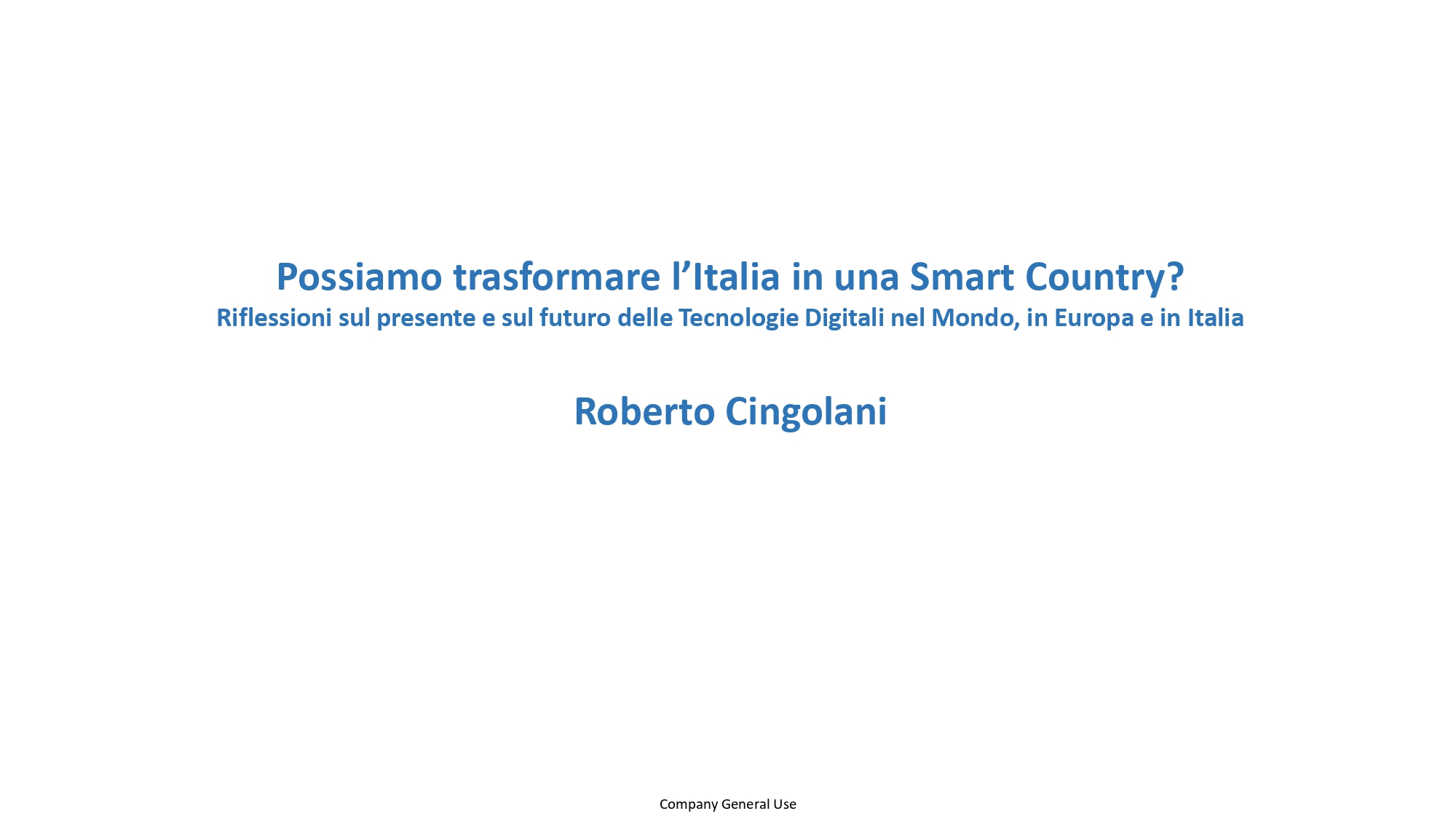
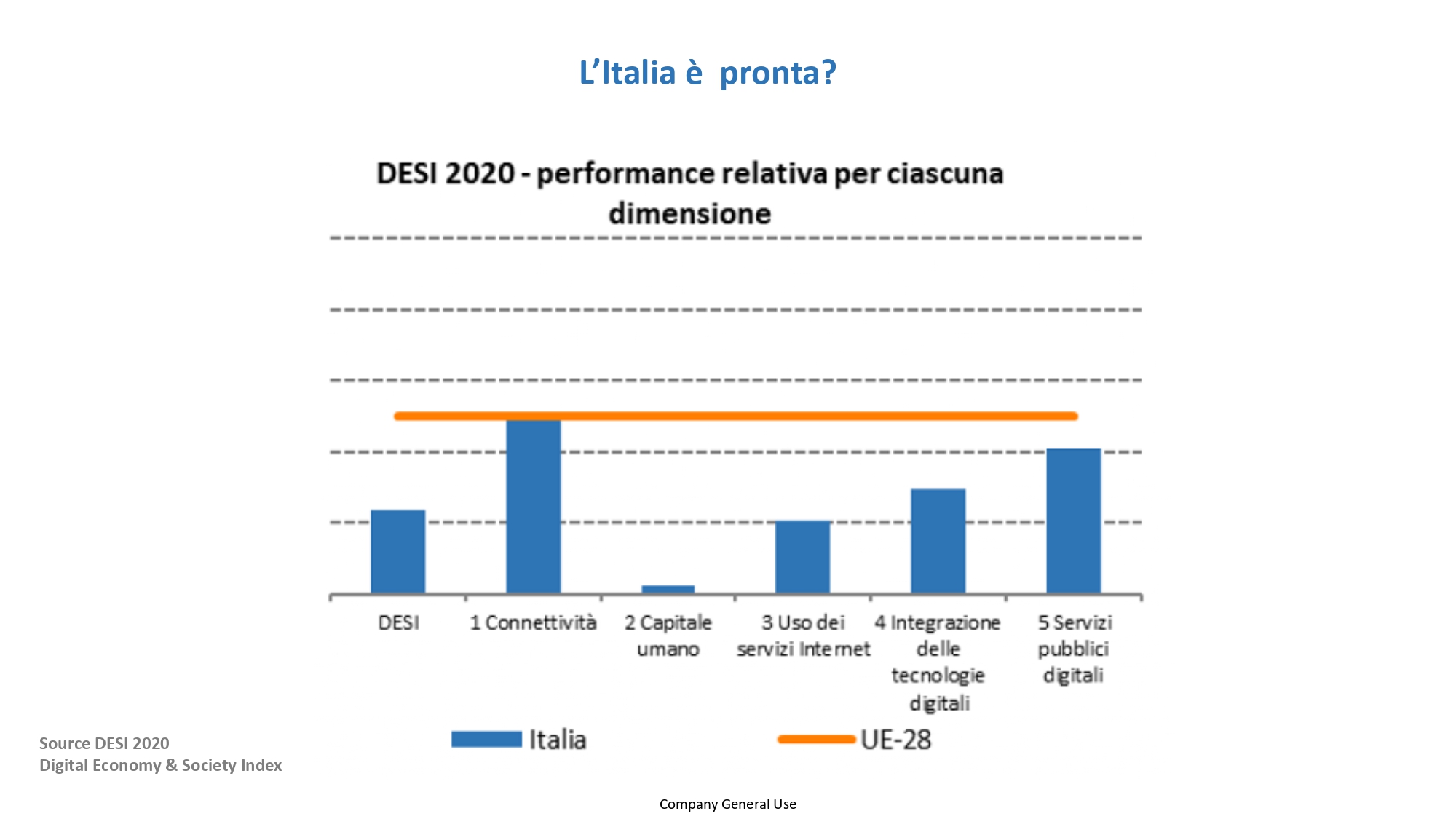
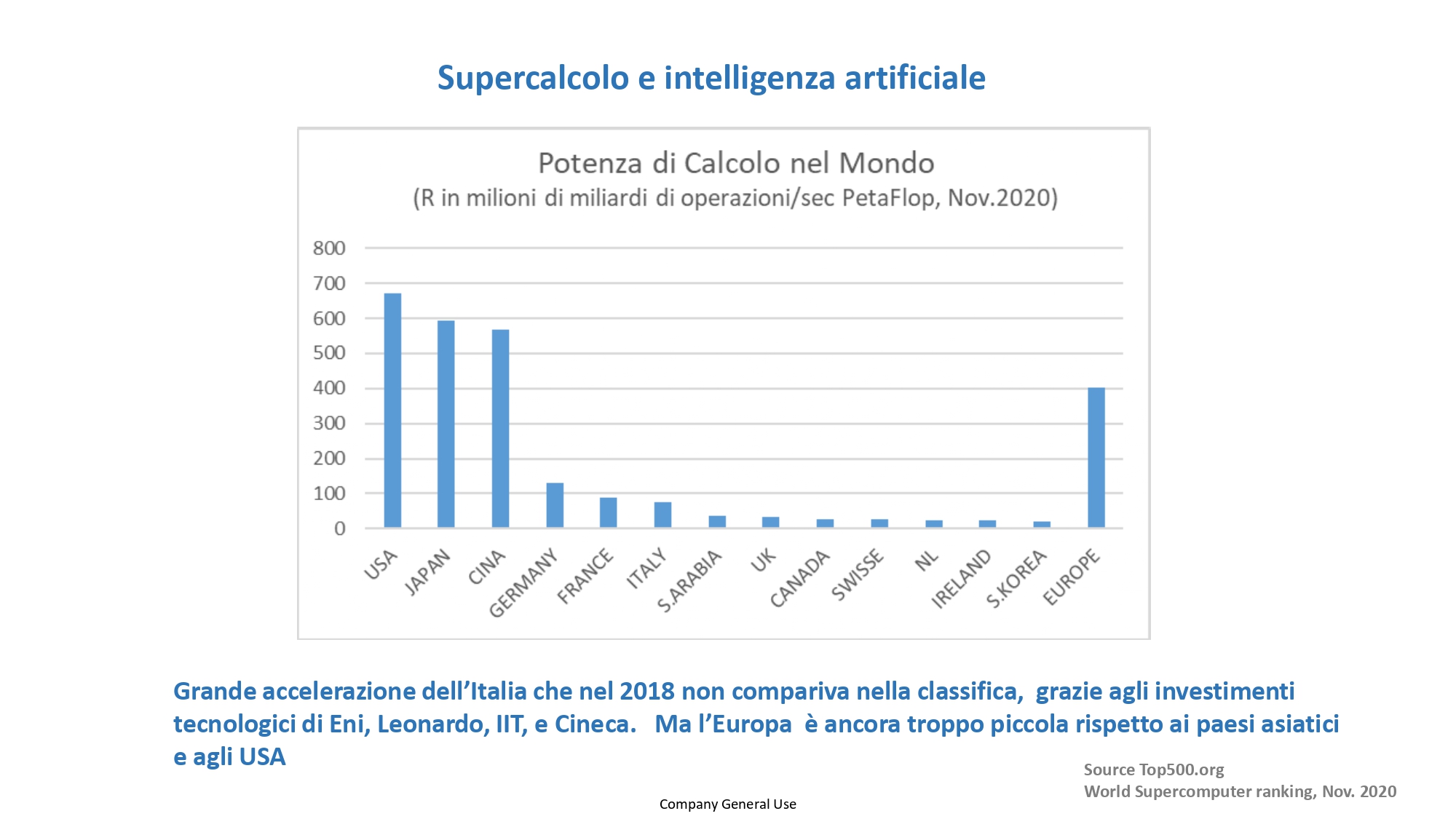
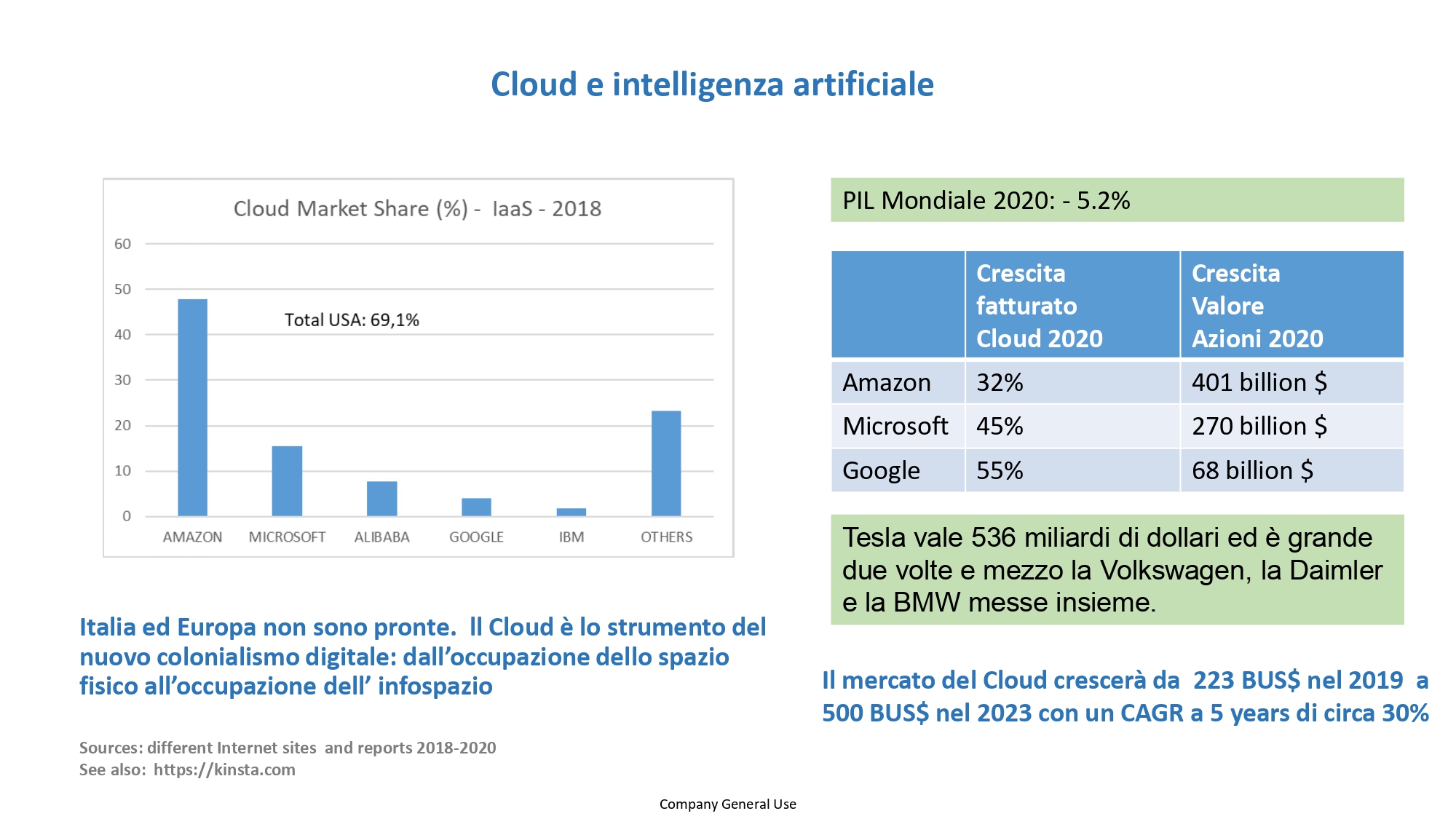
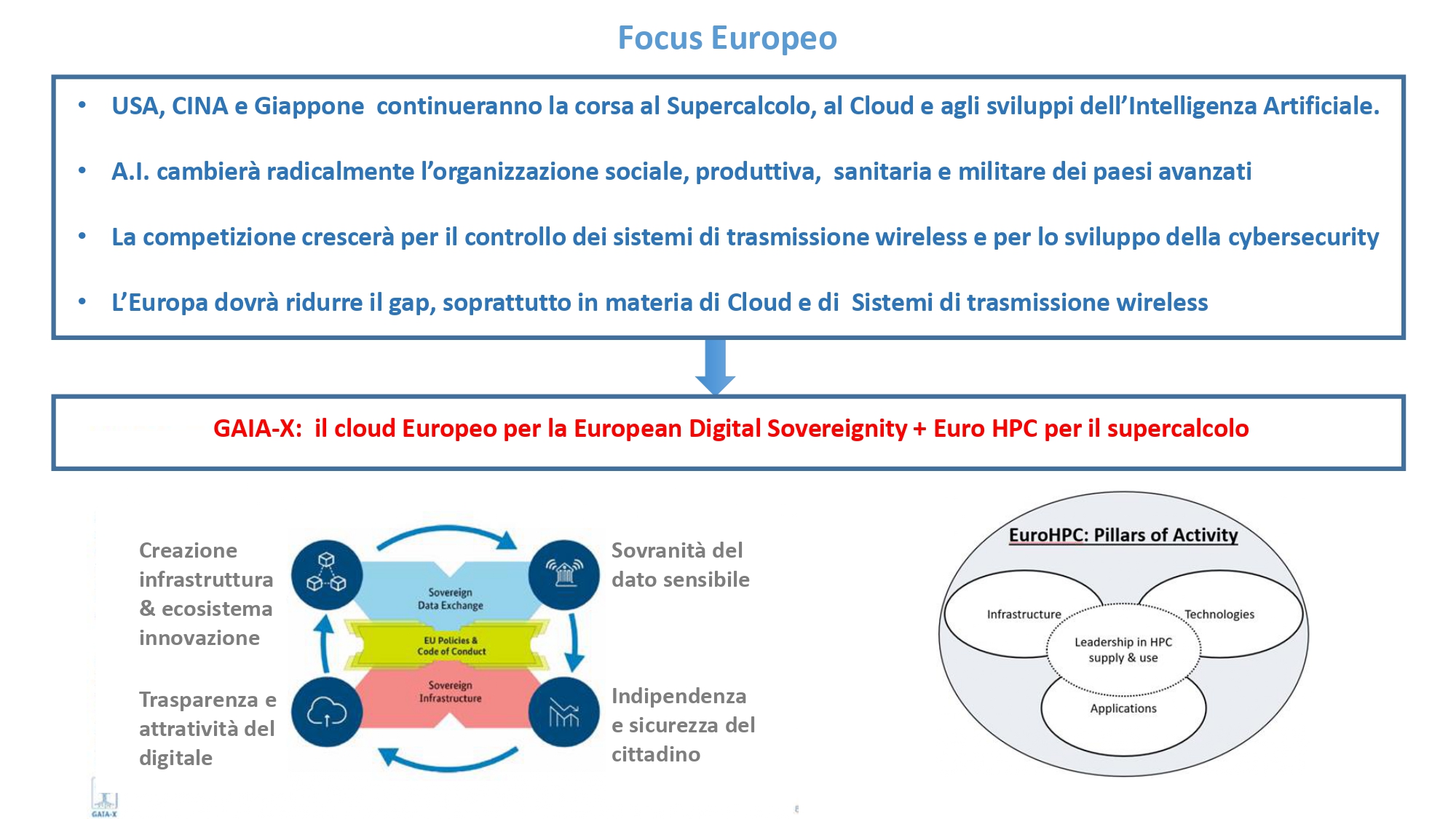
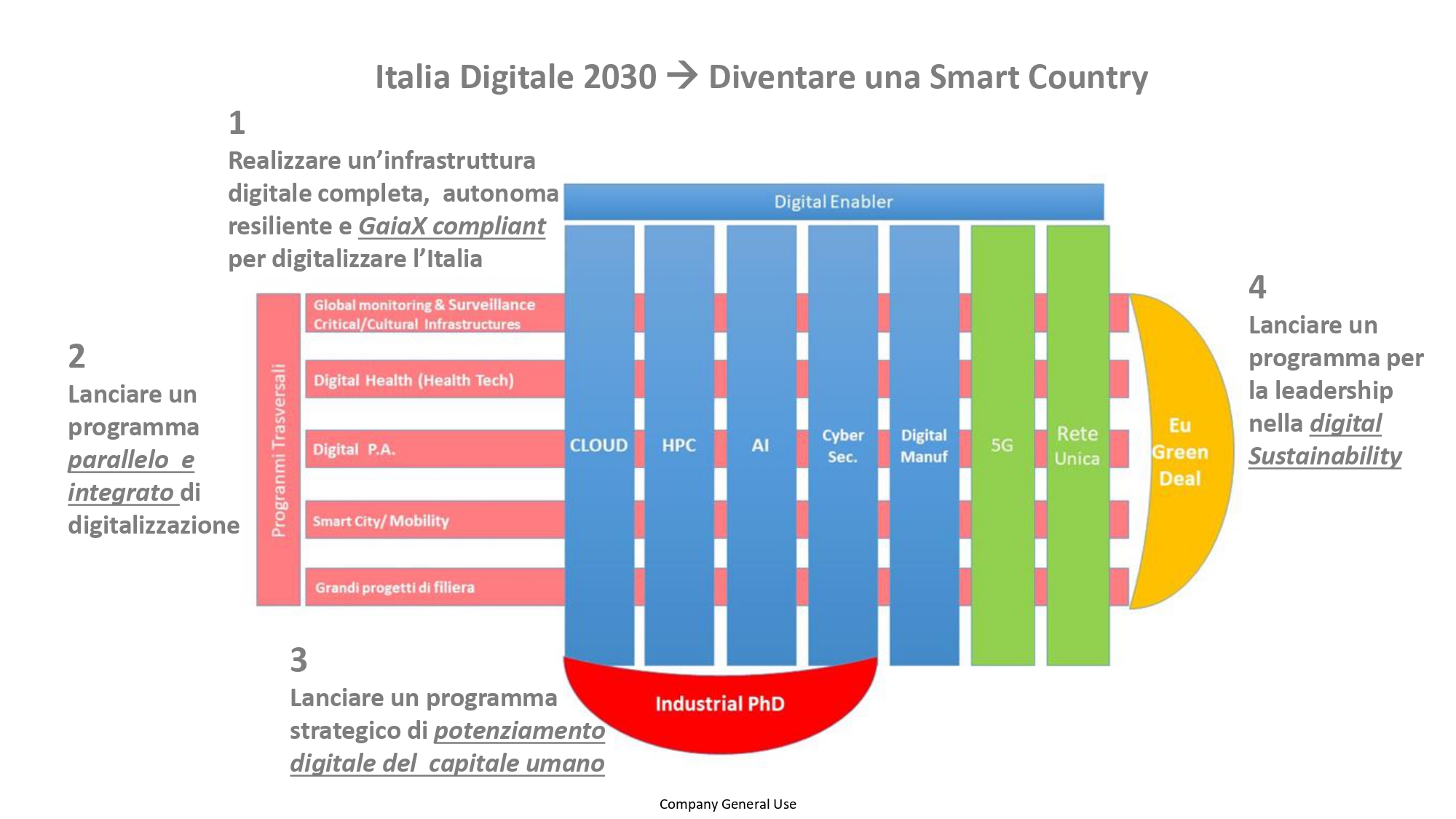
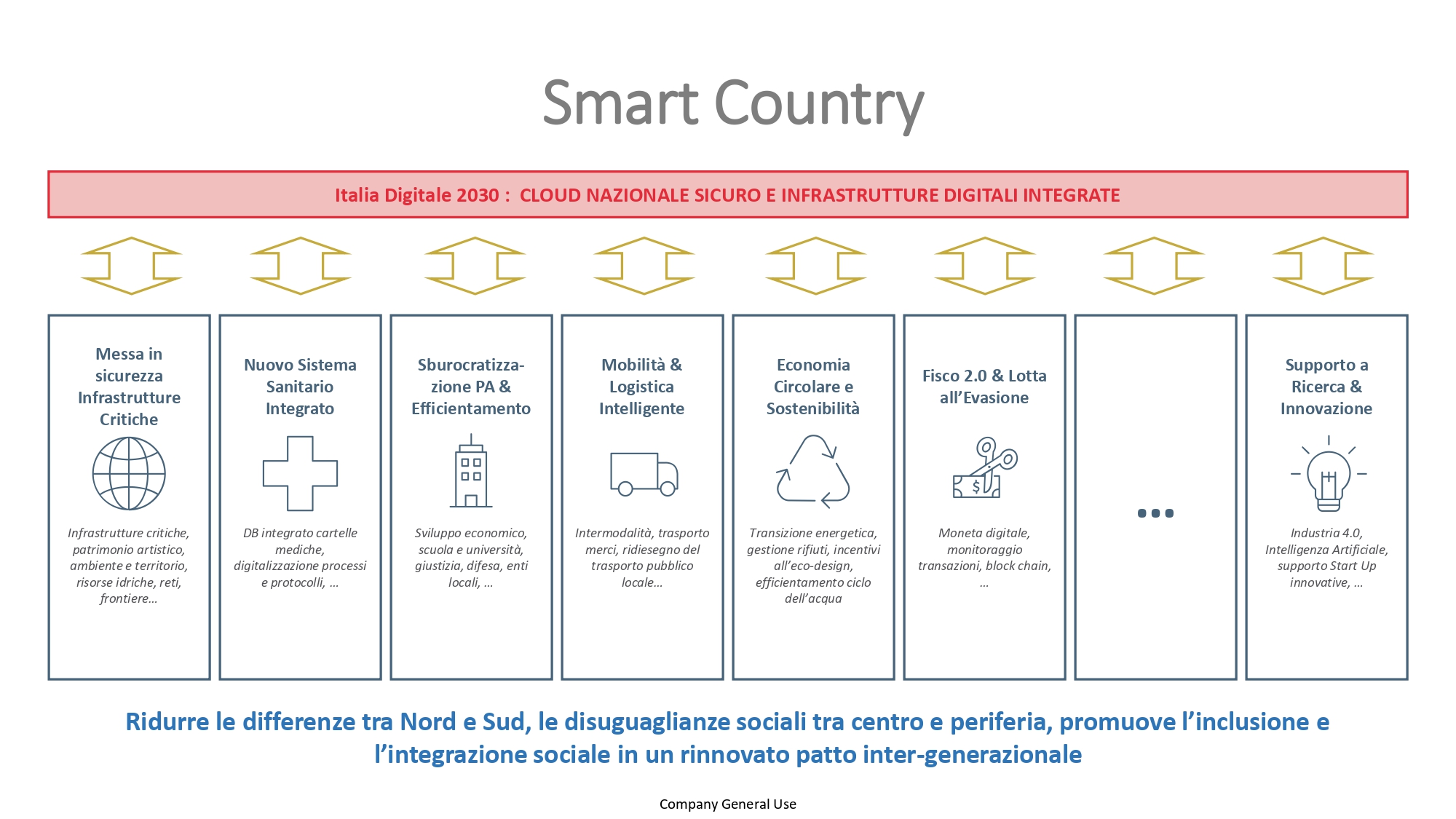
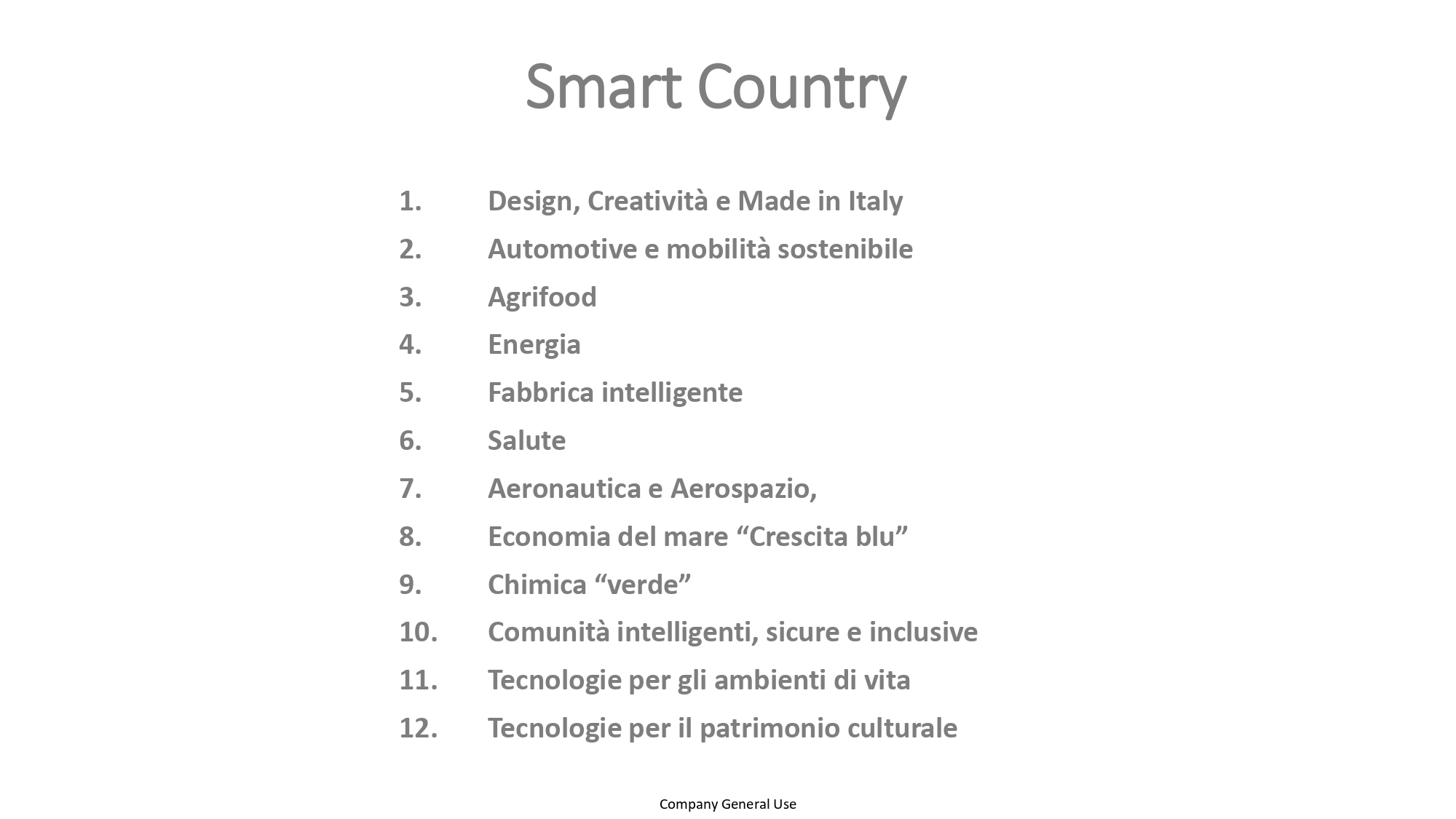
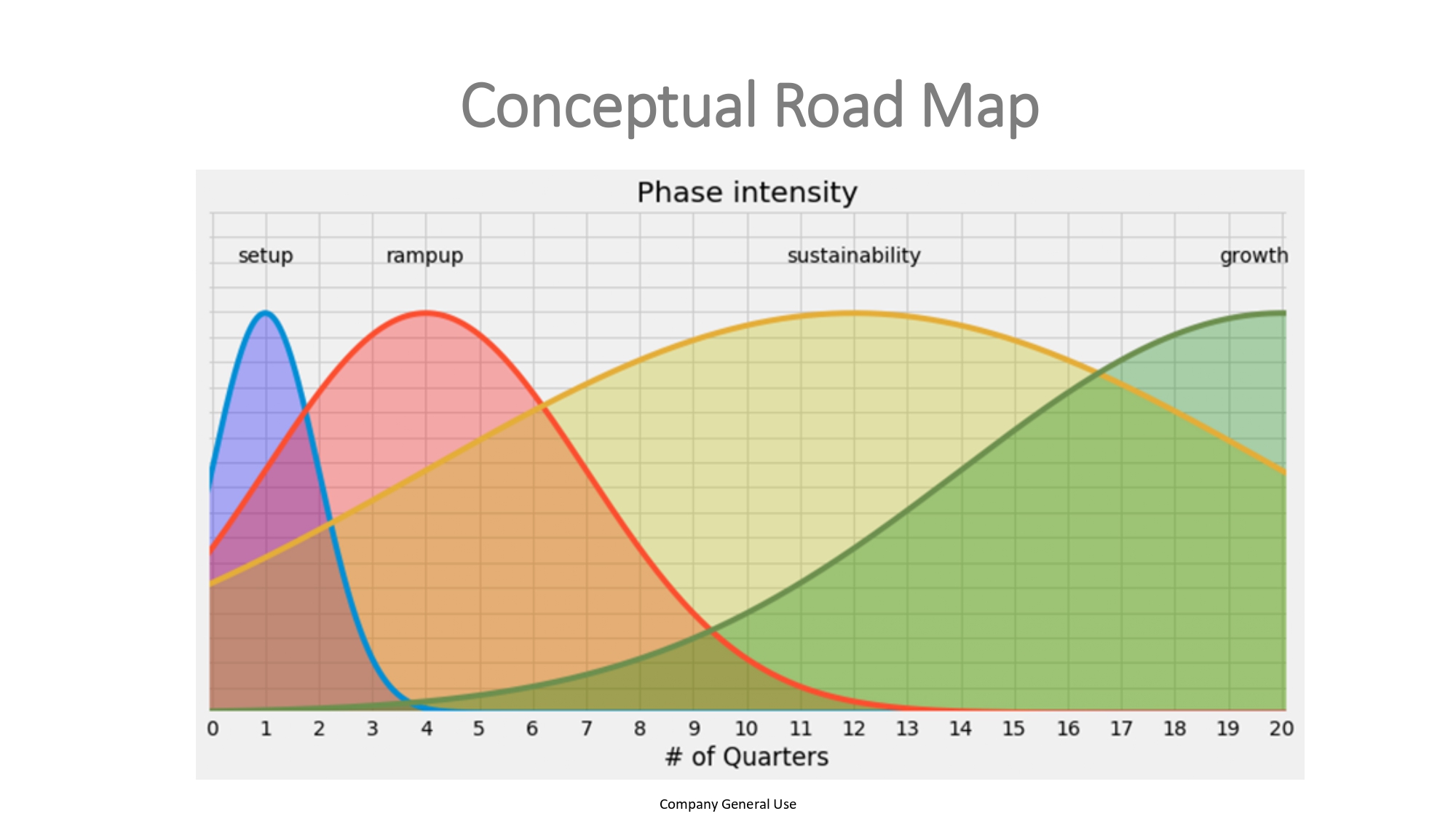
This is a machine translation from Italian language of a post published on Start Magazine at the URL https://www.startmag.it/innovazione/ecco-i-consigli-di-leonardo-per-draghi-su-cloud-e-intelligenza-artificiale/ on Mon, 15 Feb 2021 10:34:06 +0000.
